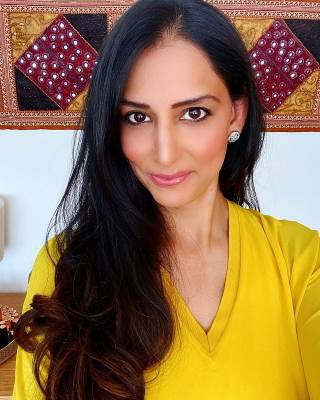Meet the Expert: Nadia Bukhari
8 October 2020
Nadia Bukhari, Academic Pharmacist and Principal Teaching Fellow at UCL School of Pharmacy, is also a Global Pharmacy Ambassador for UCL.
Leadership in pharmacy is Nadia’s main research area of interest, with teaching and training undergraduates and pharmacists always being a key passion and a drive for her.

Nadia is also renowned within the industry both in the UK and internationally, for her campaigns to support the role of the pharmacist and specifically to drive forward opportunities for women in pharmacy - in countries such as Pakistan, UAE, Oman, Poland, Greece, Brazil, Portugal, Italy and Belgium.
Nadia has been recognised for her outstanding contributions to the profession by The Royal Pharmaceutical Society. She is the youngest female and youngest Asian to be awarded the status of Fellow of the Royal Pharmaceutical Society. Nadia was the first Muslim woman to have been elected onto the National Pharmacy Board for England, which sets the strategy for the profession and influences at a government level.
Importantly, Nadia uses her platform to be a vocal and prominent advocate for women’s rights and is on the Board of Trustees for the Pakistan Alliance for Girls Education (PAGE) - a charity organisation supported by the government of Pakistan which promotes gender equality in education. In this ambassador role she is currently involved in a huge national project to get more girls into school in Pakistan. In addition, Nadia is the chief pharmacist for docHERs, Pakistan’s leading telemedicine provider; which focuses on leveraging the un-utilised female health workforce to provide healthcare solutions in both urban and rural Pakistan.
She is also the Global Lead for Gender Equity at the International Pharmaceutical Federation and has founded the National Alliance for Women in Pharmacy in Pakistan.
In October last year, Nadia was invited by the Royal Household to a celebration of Pakistani culture and achievement at the Aga Khan Centre in London. As the Duke and Duchess of Cambridge prepared for their trip to Pakistan, they invited notable members from the Pakistani Diaspora community in the UK to a special engagement event. Nadia was invited due to her high-level of engagement in Pakistan.
During the pandemic, Nadia has been active co-authoring precautionary guidance for front-line pharmacists in Pakistan. Nadia developed an infographic called ‘10 Step Guidance for Pharmacy Teams’ for front-line pharmacists in Pakistan. This was endorsed by the Ministry of Health and Drug Regulatory Authority of Pakistan. The guidance, which included simple, intuitive graphics and icons, is now available in both English and Urdu languages.
We caught up with Nadia to understand what motivates her advocacy work for the role of the pharmacist, her focus on women’s rights internationally and how she has pivoted her skills to support the COVID-19 cause during the pandemic.
We asked Nadia our ‘quick fire 5’ - and this is what she told us…
Did you always know that you wanted to follow a career in pharmacy?
Nadia: Since I was 16! I always had an interest in science, chemistry in particular and wanted to pursue a patient-facing career. Coincidentally, I landed myself a summer job at a very busy high street pharmacy; and the rest as they say, is history.
What motivates you to strive to improve educational opportunities for girls in Pakistan?
Nadia: The girls themselves are my biggest motivation. I visit Pakistan often and make it a point to visit one of our schools when I do. Spending time and talking to the girls really is my driving force. They are full of aspiration and are so grateful for the educational opportunities they are receiving. Their stories are inspirational; it leaves me wanting to do even more for them.
How key has the role of the pharmacist been during the COVID-19 pandemic both in the UK and abroad?
Nadia: Pharmacists have been courageous and relentless and have emerged as true leaders during the pandemic. Our profession has been on the frontline throughout – providing open access for the public and patients. Whilst doctors’ surgeries were closed and had moved to phone appointments during the peak, pharmacies were still open providing not only the essential medicine services but supporting patients through their concerns and worries during COVID-19.
What do you most enjoy about taking on a new cohort of pharmacy students – and how do you feel when you see them graduate at the end of their course?
Nadia: It is all very exciting when a new cohort starts. They are super keen to learn. Being a pharmacist myself, I enjoy sharing my experiences and motivating others on the wide range of opportunities the profession offers. In addition, being a UCL alumna gives me great pride to represent the university but also understand how new students are feeling sitting in the same lecture theatre as I did many years ago. Watching the students grow during their 4 years is extremely rewarding and the highlight of the job. It can be quite emotional at times watching them graduate.
What is the driving force behind your passion to advocate for pharmacy careers for women?
Nadia: Being a woman myself from a BAME background I felt there were not enough role models that I could relate to when I was studying pharmacy. This has fuelled my passion to advocate pharmacy careers not just for women, but women in particular who share a similar background to me.
 Close
Close

